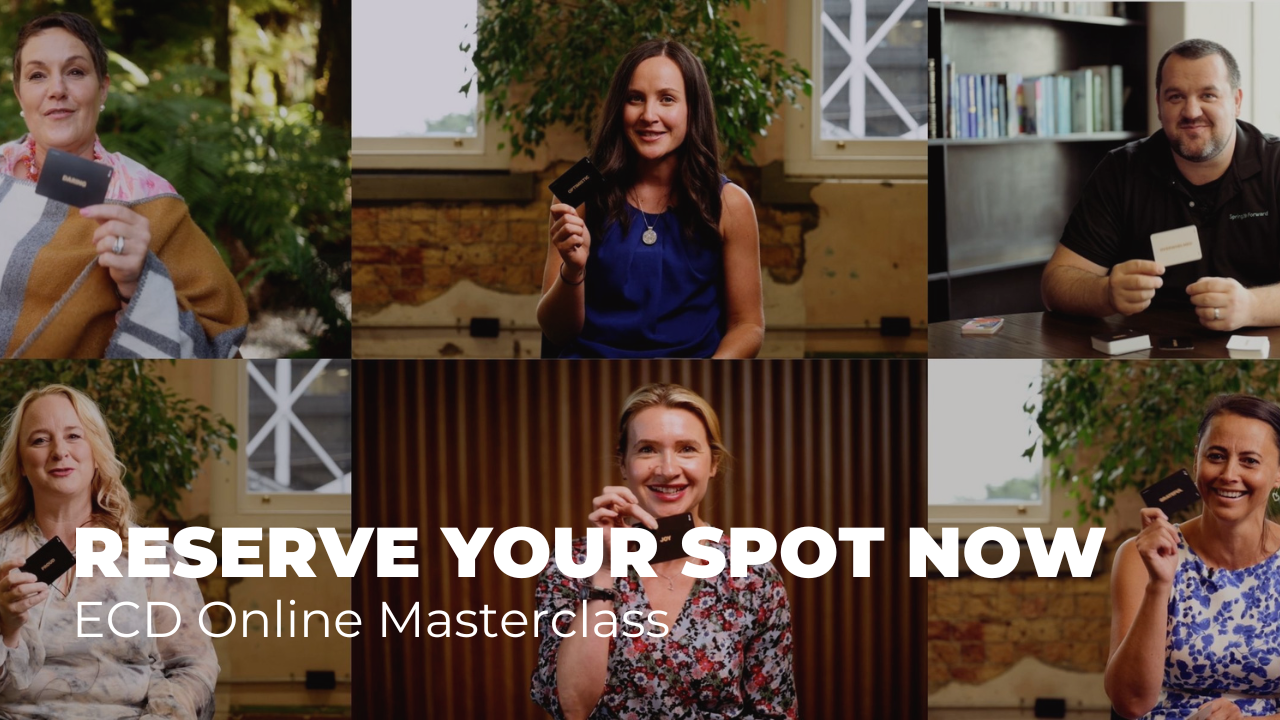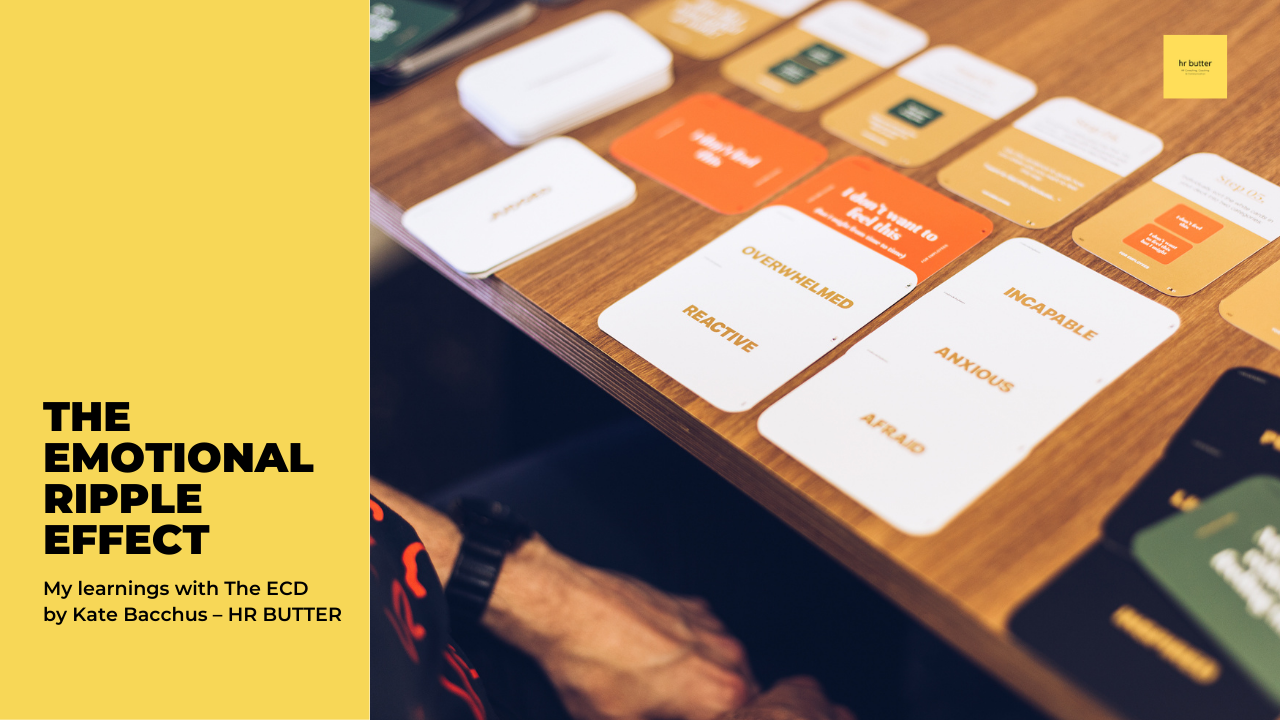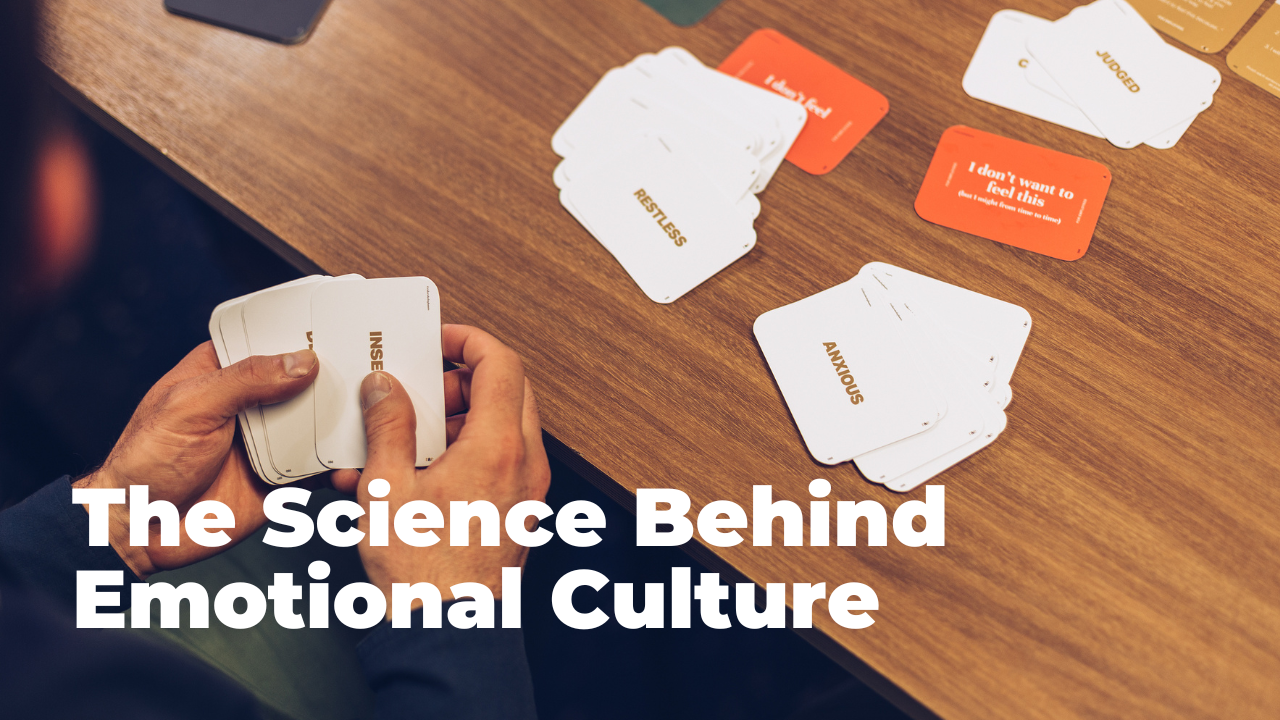Building Emotional Culture in a Male-Dominated Industry

When Krisrian Colegate first picked up The Emotional Culture Deck, he wasn’t joining a culture initiative he was starting one.
As General Manager at a 17-site manufacturing and construction business, Christian has spent the past two years quietly embedding emotional culture into the everyday fabric of his organisation. From toolbox talks and safety rituals to leadership development and change management, he’s led one of the most powerful and sustained ECD journeys we’ve seen.
In this video, you’ll hear highlights from Kristian's story of how he used The ECD in a male-dominated industry, and what’s shifted across leadership, performance, and safety.
Before we even dive into Kristian’s story, here’s what changed:
-
🔻 40% reduction in lost time injuries
-
🔺 Higher team engagement where leaders talk about emotion
-
🔻 Lower turnover in branches using The ECD
-
🔺 Improved safety reporting
-
📊 Emotional culture now tracked across 360s, retention, and leadership assessmen
...
New Insight Guide: How Emotional Culture Shapes Performance and Engagement

Most leaders focus on what people think and do at work—but what about how they feel?
Emotional culture plays a powerful role in shaping performance, engagement, and team dynamics. Yet, it’s often overlooked in favour of strategy, process, and intellectual values. But research shows that when organisations consciously craft their emotional culture, they create workplaces where people thrive.
That’s why we’ve created our latest Insight Guide.
Emotional Culture Crafting: How Emotional Culture Shapes Performance and Engagement
This guide explores:
- Why emotional culture matters for performance, engagement, and well-being
- The common reasons leaders overlook emotional culture (and how to overcome them)
- Practical steps to craft emotional culture with intention
It’s a must-read for leaders, HR professionals, and consultants looking to create more emotionally intelligent, high-performing workplaces.
Download the guide now and start crafting your emotional culture with intention.
...Game-Changing Research Collaboration Opportunity with Professor Michael Parke at Wharton Business School

Update from Jeremy originally posted in our Elephant Rider Community here >
How Our Community Shapes the Future of Emotional Culture
Hi everyone, I've got some exciting news to share! We're teaming up with Professor Michael Parke from Wharton for a special research project, and we're inviting you to be a part of it. We’ve been in discussion together since he came into our Community earlier this year to share his research on voicing negative emotions at work (see more here if you missed it)
What's this research all about? We're researching the impact of our ECD workshops (specifically affect labelling) on employees, their leaders and their teams.
Here's the scoop: To make this study happen, we need to work together as Elephant Riders to run a series of workshops over the next four months. We're aiming for a minimum of 100 participants across all workshops, whether that comes from many small teams or a few larger ones. This flexibility means whether you're working with a single team ...
10 Spots left on March Cohort ECD Online Masterclass Waitlist

Start your journey to Mastery.
You can download The Emotional Culture Deck for free, and that will give you a taste of the potential of the #1 game in the world for better workplace culture. You can buy your own Deck and work with our sanely simple card game to explore, understand and map your emotions and those of your team or organisation. But to really make the most of The Emotional Culture Deck, enrol in our Online Masterclass Course and put yourself enroute to mastery.
You can reserve your place right now here »
See results immediately, feel ripples indefinitely
If you're looking to unlock your full emotional potential and/or create a more emotionally connected workplace, The ECD Online Masterclass Course strikes the perfect balance between lessons and actions to ensure an enjoyable and enriching learning experience:
-
Bite-sized videos explain The ECD in a structured and easy-to-follow way
-
Practical tools and tips aid facilitation, training, and organisational deve
...
How Understanding Emotional Culture Can Lead To Change Program Success with Jeremy Dean

Listen here on the New Way Podcast with Dr Kate Byrne >
"The conversation about emotional culture is so powerful and yet an often neglected aspect of the workplace. I hope you take so much away from Jeremy's insights and practical advice, highlighting the power of emotions in driving human behaviour and culture. It's clear that by embracing emotional culture, organisations can not only navigate change more effectively but also create a healthier and more empathetic work environment."
Introduction to the Podcast Episode
Emotions play a pivotal role in the workplace, particularly during times of change. When teams and stakeholders emotionally align with a strategic vision, change initiatives flourish. However, the topic of emotional culture is often pushed aside until emotions become problematic.
Recently Dr Kate Bryne had the opportunity to engage in a meaningful conversation with Jeremy Dean, the founder and creative force behind our company. We design s
...Unlocking Emotional Culture: How Senior Teachers Used The Emotional Culture Deck at the National Kindergartens Association Hui

The recent Hui for Senior Teachers from the National Kindergartens Association was a phenomenal success, thanks to the incorporation of The Emotional Culture Deck. This unique tool proved to be a game-changer for 50 passionate educators looking to advance both personally and professionally.
The workshop began with a "self-branding" exercise, allowing each participant to identify key traits they wanted to be recognised for, as well as traits they wished to avoid. Following that, The ECD Deck served as a reflection tool for the teachers, helping them evaluate their emotional state over the past week and set intentions for the upcoming week.
Perhaps one of the most powerful applications was its use as a strategy to manage challenging relationships. Teachers were encouraged to identify the feelings triggered when interacting with someone they find difficult and to come up with an actionable plan to re-approach that person without bias.
The ECD also aided in facilit
...Jeremy Dean | How emotional culture drives transformational change

Reposted from Gagen MacDonald >
In this episode of Let Go & Lead, Jeremy Dean, Founder and Master Gamemaker at riders&elephants, talks with Maril about the elephant in the room of corporate culture: emotion.
Emotion is core to belief, which is core to motivating people. Yet often, when undertaking a culture change or business transformation, leaders will start by thinking about the values and behaviors they desire; not how they want people to feel. Why is this? Because emotions are hard to talk about. Jeremy’s organization has found success making it easier through an unusual method: “gamifying” the conversation through a card game for organizations.
About Let Go & Lead
Let Go & Lead is a leadership community created by Maril MacDonald, founder and CEO of Gagen MacDonald. Maril brings together provocateurs, pioneers, thought leaders and those leading the conversation around culture, transformation and change.
Over the course of the past 12 years, Let Go & Lead has existed in ma...
The Emotional Ripple Effect by Kate Bacchus

Article reposted from Karte Bacchus Linkedin >>
I'm on a journey to become a Certified ECD Consultant, and part of that journey has been in the power of sharing the Emotional Culture Deck cards with leaders and unlocking the impact of crafting workplace cultures factoring emotions.
Over the last month, I've chatted with leaders in the NFP sector, the volunteering community, business owners, entrepreneurs, and leaders of teams in corporate environments.
All these leaders are experts in their own fields and have similar and yet different needs for themselves and for their teams or stakeholders that they're working with.

Playing with the ECD cards unlocked powerful conversations of self-awareness and reflection, and passion for how they want their people to feel, connect, and be motivated.
For me, I think about workplace culture as 'what we do and how we treat each other each day at work'. It's a combination of Emotions + Beliefs + Actions = Culture.
This means that Cu...
The Science Behind Emotional Culture: Why the Emotional Culture Deck is a Game-Changer for Organisations

For even the most cynical and rational individuals, understanding and addressing emotional culture in the workplace is essential for success. Research has shown that emotional culture influences employee satisfaction, burnout, absenteeism, teamwork, and financial performance. The Emotional Culture Deck, a powerful and innovative tool, can help you tap into this often-overlooked aspect of organisational culture. Read on to learn about the research-backed benefits of using The Emotional Culture Deck in your organisation.
The Impact of Emotional Culture on Employee Satisfaction
Numerous studies have established a strong connection between emotional culture and employee satisfaction. When employees feel valued, supported, and understood, they are more likely to be satisfied with their jobs. The Emotional Culture Deck fosters open conversations about emotions, helping to create a workplace environment where employees feel heard and acknowledged. This heightened satisfaction can lead to in...


